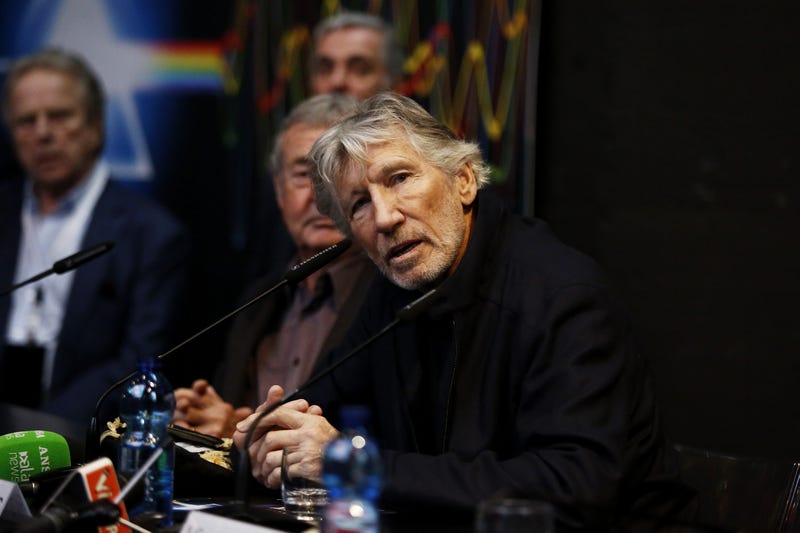
PHILADELPHIA (KYW Newsradio) — An upcoming Palestinian literary festival at the University of Pennsylvania has drawn controversy and outcry over some of the event’s speakers, underscoring long-held debates about where and how the line should be drawn between supporting Palestine and espousing antisemitism.
Philadelphia Jewish leaders — in a joint statement from the Jewish Federation and the ADL, and with support from the Weitzman National Museum of American Jewish History — expressed concerns about what they say are “speakers promoting inflammatory and antisemitic narratives about Israel” during this weekend’s Palestine Writes Literature Festival at Penn.
Some of those speakers include musician Roger Waters, of the band Pink Floyd, and author/activist Marc Lamont Hill.
In June, Waters was labeled as antisemitic by the U.S. State Department for what they called “using imagery that is deeply offensive to Jewish people and minimized the Holocaust,'' during concerts in which he wore a costume resembling a Nazi uniform.
A German court sided with Waters ahead of performances, saying while some of the show was “tasteless,” it “did not glorify or relativise the crimes of the Nazis.”
Waters, who has long denied being antisemitic, aligns with the Boycott, Divestment, Sanctions movement that pushes “to end international support for Israel's oppression of Palestinians.”
“Can we please stop conflating criticism of the policies of the government of the apartheid, racist, state of Israel with anti-semitism!” he wrote on Instagram.
Among the accomplishments listed in Waters’ bio on the festival’s website is his urging of artists not to perform in Tel Aviv, which the festival refers to as the capital of Israel instead of Jerusalem. It’s part of the rhetoric surrounding the Middle East conflict in which Palestinians see East Jerusalem as the capital of a future Palestinian state.
Hill, in a 2018 statement at the United Nations, expressed his desire for a “Free Palestine, from the river to the sea,” language that pro-Israel allies see as a dog whistle for calling for the destruction of Israel. The Philadelphia-based Hill was dismissed from his job as a CNN analyst following his comments.
Event organizer Susan Abulhawa has also been criticized by Jewish leaders for statements on X, formerly known as Twitter, regarding the murder of a U.S.-Israeli citizen by calling him human garbage. She also called Israel a militarized tumor following an attack outside a synagogue in Jerusalem.
Abulhawa responded in her own letter to Penn’s president by denouncing antisemitism but condemning Zionism. She went on to accuse Israel of “crimes against humanity, including apartheid.”
Penn leaders released a statement which read in part that they “fiercely support the free exchange of ideas as central to our educational mission including the expression of views that are controversial and even those that are incompatible with our institutional values.”
Penn’s Hillel chapter posted on social media that it is planning “a massive Shabbat Together event” on September 22, timed to the start of the event to celebrate “Jewish pride, unity, and togetherness.”
Palestinian and Arab student groups say that celebrating Palestinian culture and identity should not be considered controversial.
The Chavurah, a Jewish student group that formed on campus as a progressive answer to Hillel, agreed.
“We feel the need to stress that Jews at Penn are by no means united on this issue. Penn Chavurah stands in support of the festival, in solidarity with many of its speakers and performers,” the organization posted on Instagram.
Both sides have expressed concerns about their safety during this event.
